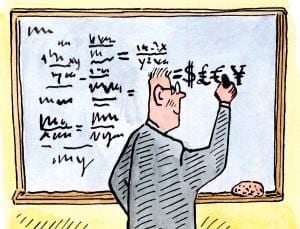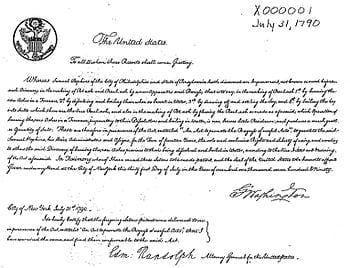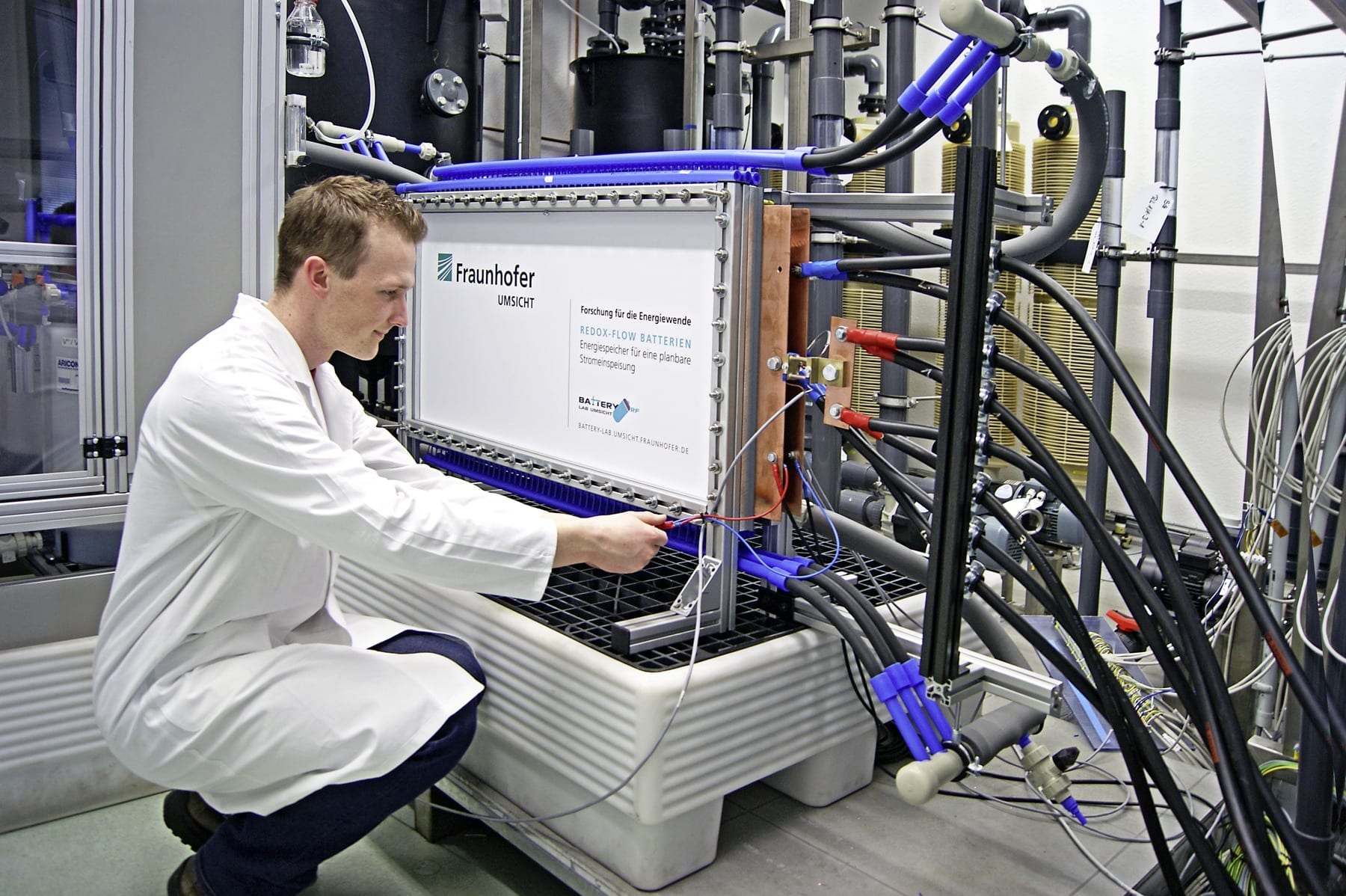
A long-running philosophical debate is being rehashed in the world of business, and big money is at stake, says Stephen Ornes
AT SOME point in their career every mathematician comes up against the question, is mathematics invented or discovered? The query makes some cranky. The answer doesn’t directly affect their work, after all, and the discussion often leads nowhere useful. Spending time debating the ultimate nature of mathematics takes away from actually doing it.
Some scholars take issue with the terms themselves. In his 2008 essay Mathematical Platonism and Its Opposites, Harvard University mathematician Barry Mazur called discovery and invention “those two too-brittle words”. One might be tempted to defuse the question altogether with a merger: perhaps maths involves inventing new relationships between things we have discovered.
It’s a metaphysical query, a nerdy way to ask whether or not some pre-existing truths underlie our existence. Here we bump up against theology. If mathematical ideas are discovered – the Platonist position – then a proof is a real-world encounter with an immortal truth. But then where, exactly, is this ethereal pool of truths? Did prime numbers exist before the big bang?
If, on the other hand, mathematics is invented, then proofs spring from human intelligence a bit like art or law. But then why do mathematicians across time and space always agree on what’s right and wrong?
The question about invention versus discovery flares up every few years, often in a different guise. The latest incarnation concerns something very down to earth: money. In this case, the discovery versus invention question has profound consequences. In fact, there may be no mathematical question with higher stakes. That’s because mathematics powers the algorithms that drive computer software, and software is big business, worth over $300 billion a year to the global economy.
One of the most hotly contested issues in software is whether it should be patentable. At present not all of it can be, because of its dependence on mathematics. Patents are granted for inventions, and most mathematical formulas are deemed to be abstract ideas, not inventions, although the rules vary from country to country; some grant software patents, some don’t. Where patents are granted, they are tantamount to big money.
Writing in the April 2013 issue of Notices of the American Mathematical Society, David Edwards from the University of Georgia in Athens points out that the debate over patents boils down to the difference between discovery and invention. He argues that because abstract mathematical ideas are regarded as “discoveries”, the system is fundamentally Platonic – and broken.
“There is no economic basis for the distinction between discovery and invention,” he told me. “Economically speaking, the difference between discovery and invention should be done away with.” He argues patents should be granted for every new formula and algorithm, including those that power computer software. Such a change would jump-start innovation. “If math were patentable, then you could have independent groups of mathematicians form a group or small company and support themselves that way,” he says.
His position is extreme, but proponents of software patentability similarly argue that the system fuels growth and rewards people for their work.
Critics, notably the nonprofit Electronic Frontier Foundation (EFF) in San Francisco, say the current patent system actually stymies innovation, because getting a patent requires years and tens of thousands of dollars.
Another criticism is that hazy wording in software patent laws has given rise to “patent trolls”, predatory companies that purchase old, cheap patents simply to use them to sue other companies for infringement. Trolling cost US companies $29 billion in 2011, according to a report from the Boston University School of Law.
The Chicago-based company Soverain Software, for example, has been accused of being a patent troll. It has racked up tens of millions of dollars suing companies including Amazon and Gap over patents for basic online shopping software. The online computer retailer Newegg, sued by Soverain for $2.5 million, fought back – and in January a US District Court in East Texas ruled against Soverain.
Even if trolls get banished, weak patents exist.
The Latest Bing News on:
Patenting mathematics
- Apple is a formidable opponent. That hasn’t stopped this CEO from suing the tech gianton May 8, 2024 at 5:37 am
On this episode of Fortune’s Leadership Next podcast, Michal Lev-Ram talks to Joe Kiani, founder, chairman and CEO of Masimo, a medical devices company, about the massive challenges he's facing: his ...
- 5 Steps to Patent an Ideaon May 6, 2024 at 4:59 pm
Think you've got a million-dollar idea? You're not alone. There's always a few people out there at any moment, convinced they've got the next big app or the next popular product, while ...
- WIPO Report Highlights Importance of Patenting to Improve Tech Capabilitieson May 6, 2024 at 12:24 pm
WIPO issued its most recent biennial report, which analyzes patent filing, scientific publications and economic data across the globe over the last two decades to identify innovation policies ...
- Patenting photonics researchon May 3, 2024 at 11:07 am
Intellectual property (IP), and patents in particular, often form an important keystone around which innovations may be successfully commercialized. Start-up companies and university spin-outs ...
- Science and Math Degreeson May 2, 2024 at 5:00 pm
In the pursuit of the extraordinary, the novel, and the unexpected, science and math at RIT blends a passion for research, the practical application of theory, and the active pursuit of new ...
- Academic programon May 1, 2024 at 5:00 pm
The department assists students planning to study mathematics in choosing an appropriate starting course. Based on a student’s academic background and skills, the department recommends a 100-level ...
- UNESCO alleges social media affects girls’ career choiceson April 25, 2024 at 12:03 pm
UNESCO released a report Thursday that claimed girls “are steered away from studying science, technology, engineering and mathematics” as a result of social media usage. The United Nations Educational ...
- How a pair of socks inspired me to study and make a career in the STEM fieldon April 24, 2024 at 9:56 am
Exposing girls to science, technology, engineering and math and encouraging them at home and school is the best way to close the STEM gender gap.
- Noncompetes Are Dead—and Tech Workers Are Free to Roamon April 23, 2024 at 4:21 pm
A new rule from the US Federal Trade Commission invalidates most noncompete agreements, frequently used to bind tech workers. It could unlock higher wages and more entrepreneurship and innovation.
- Forum of Mathematicson February 15, 2024 at 3:02 am
Forum of Mathematics, Pi and Forum of Mathematics, Sigma together offer fully open access publication combined with peer-review standards set by an international editorial board of the highest calibre ...
The Latest Google Headlines on:
Patenting mathematics
[google_news title=”” keyword=”patenting mathematics” num_posts=”10″ blurb_length=”0″ show_thumb=”left”] [/vc_column_text]The Latest Bing News on:
Patent trolls
- 5 Steps to Patent an Ideaon May 6, 2024 at 4:59 pm
Think you've got a million-dollar idea? You're not alone. There's always a few people out there at any moment, convinced they've got the next big app or the next popular product, while ...
- New Data Show There Is a Problem with the U.S. Patent System—But It’s Not Patent Trollson May 6, 2024 at 4:15 am
If the headlines are to be believed, every aspect of American life, from farming to football, is under threat due to excessive patent litigation. While these anecdotes may seem compelling, it is ...
- Moderna Investors Should Beware Patent-Dispute Fallouton April 23, 2024 at 11:40 am
Moderna's stock soared on positive cancer vaccine trial results, but legal troubles loom as a patent dispute threatens massive damages. Read my analysis here.
- Senator introduces legislation targeting patent trollson April 23, 2024 at 3:43 am
PCWorld helps you navigate the PC ecosystem to find the products you want and the advice you need to get the job done.
- Report: Obama to announce measures against patent trollson April 23, 2024 at 3:33 am
After months on the market, Windows 8 tablets have yet to rack up the sales Microsoft and PC vendors were originally hoping for. But on Monday Taiwanese PC maker Acer showed off what could be the ...
- How two small Texas towns became the patent-law centre of Americaon April 15, 2024 at 5:00 pm
Around the same period, “it also happened that there was an explosion of patent-troll litigation,” says Paul Gugliuzza of Temple University, referring to plaintiffs who own bad patents and ...
- Empirical Evidence on the Behavior and Impact of Patent Trolls: A Surveyon April 7, 2024 at 5:00 pm
Cohen, Lauren, Umit Gurun, and Scott Duke Kominers. "Empirical Evidence on the Behavior and Impact of Patent Trolls: A Survey." In Patent Assertion Entities and Competition Policy, edited by D. Daniel ...
- Meta Transfers AI-Related Patents to Midjourney to Thwart Patent Trollson April 3, 2024 at 3:10 pm
But the specter of the patent troll threatens to keep companies bogged down in distracting and costly legal battles. “An open approach to AI leads to better, safer products, faster innovation ...
- Intel files lawsuit to overturn European patent that threatens to block its exports to Germanyon March 28, 2024 at 10:12 am
Speaking to MarketWatch, an Intel spokesperson called R2 a “patent troll” and said that “as with its invalidated U.S. patent, we strongly believe R2’s patent at issue in the German case is ...
- patent trollon March 12, 2024 at 12:07 am
Hypertext is one of South Africa’s leading technology news and reviews sites. We publish original content daily for consumers and businesses. All original words & media by Hypertext by htxt ...
The Latest Google Headlines on:
Patent trolls
[google_news title=”” keyword=”patent trolls” num_posts=”10″ blurb_length=”0″ show_thumb=”left”]










